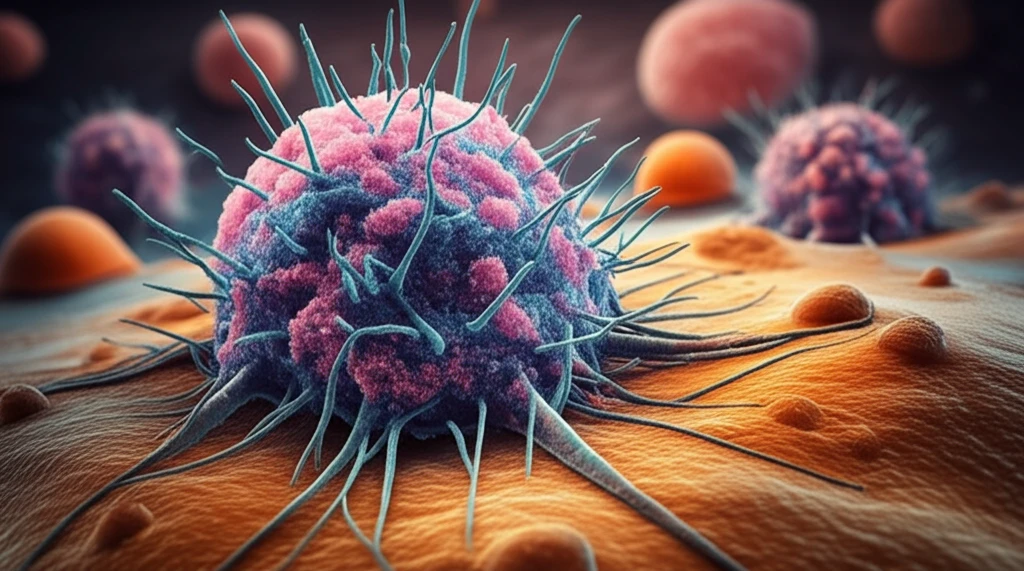
Decoding Drug Resistance: How Sugar-Coating Cancer Cells Impacts Treatment
"A deep dive into glycosylation and its role in making colorectal cancer cells resistant to therapy, and what we can do about it."
Colorectal cancer (CRC) is a formidable challenge, ranking as the fourth leading cause of cancer-related deaths worldwide. Despite advances in treatment, drug resistance remains a critical obstacle to curative efficiency. Recent research is uncovering the complex mechanisms that allow cancer cells to evade the effects of chemotherapy, focusing on a process called glycosylation.
Glycosylation, the attachment of sugar molecules to proteins, is a widespread modification that influences the behavior of human proteins. It’s also sensitive to nutrient levels, making it a key player in how cancer cells adapt and thrive. In CRC, altered glycosylation patterns have been linked to cancer development, progression, and, crucially, drug resistance. Changes like the carbohydrate antigen CA 19-9 and modifications to carcinoembryonic antigen (CEA) are already used as biomarkers to monitor CRC, highlighting the clinical relevance of glycosylation.
This article delves into the emerging evidence that establishes the critical role of altered glycosylation in CRC drug resistance. We will explore how these altered sugar coatings induce resistance to apoptosis, activate signaling pathways that promote cancer cell survival, change drug absorption and metabolism, and even lead to the acquisition of stemness—a characteristic that makes cancer cells particularly difficult to eradicate. Understanding these mechanisms is crucial for developing new therapeutic strategies, identifying predictive biomarkers, and tailoring dietary interventions to improve cancer treatment outcomes.
How Does Glycosylation Affect Drug Resistance?

Glycosylation involves enzymes called glycosyltransferases, which attach carbohydrate molecules to proteins and lipids. This modification can profoundly impact a protein's folding, stability, localization, and interactions with other molecules. In cancer cells, these glycosylation patterns can become abnormal, leading to several key effects:
- Resistance to Apoptosis: Altered glycosylation can interfere with the normal signals that trigger programmed cell death (apoptosis) in cancer cells, making them resistant to chemotherapy-induced cell death.
- Activation of Signaling Pathways: Abnormal glycosylation can activate signaling pathways that promote cancer cell survival, growth, and metastasis. These pathways can override the effects of anti-cancer drugs.
- Altered Drug Absorption and Metabolism: Glycosylation can affect how well drugs are absorbed into cancer cells and how they are metabolized. This can reduce the concentration of the drug inside the cell, decreasing its effectiveness.
- Stemness Acquisition: Glycosylation can contribute to cancer cells acquiring stem-like properties, making them more resistant to treatment and capable of initiating new tumors.
The Future of Cancer Treatment: Targeting Glycosylation
As obesity and diabetes rates rise, so does the risk of colorectal cancer and relapse after treatment. These conditions can alter glycosylation processes, emphasizing the need to understand and target these mechanisms. By identifying specific glycosylation alterations that promote drug resistance, researchers hope to develop new therapies, improve existing treatments, and personalize dietary recommendations to combat cancer more effectively.
